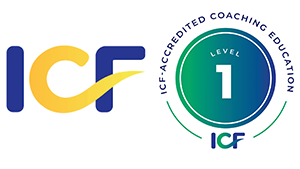Dr. Dave Krueger has had a long-lasting, successful career as a mentor coach. His wisdom has touched the lives of many. He offers up the top advice that can help mentor coaches grow stronger in their roles:
- Listen with the intensity most people have only while talking.
- Change is constant and inevitable; it is the resistance to change that generates most problems.
- It takes two real people for a co-created immersion and collaboration to occur.
- The role of storyteller and listener unfolds in the shared space of the mentor coaching relationship, co-creating a new story.
- Clients know what they need, though not perhaps in conscious, logical, or daytime language, and will show us in the relationship process what it is like to be them, and what needs to be addressed.
- We need to see the self that the client hopes to become, the evolving new story that sometimes gets obscured from view.
- At times, a thought, feeling, or behavior is an answer to question its creator has not dared to ask.
- We have to believe in the client until he or she teaches both of us why.
- An authentic belief in someone activates their brain to create a state of mind that transcends usual thinking and performance.
- The architecture of trust silently forms while you talk about other things; the co-created new story gives oxygen to hope, highlights the relief and release of new experience, and pushes creativity to full flight.
- A fact or a belief is an anatomical reality in someone’s brain; a new belief or strategy can’t simply overwrite what’s already there. Change is a process.
- We need to recognize the silent intent embedded in the compromised result, to see the possibility camouflaged in the frustrating process.
- To make change permanent, the new experience needs to be incorporated into one’s identity.
- Regulating states of mind is the most important success strategy. Each state has its own story.
- Your state of mind will have emotional contagion for your client and others.
- Confident is a state of mind.
- Knowing what not to do is at least as important as knowing what to do. You may not always know what the next right thing is, but you can almost always know what it isn’t.
- Knowing how to reverse a behavior pattern is evidence that we truly understand it.
- The most common thing that gets in the way of understanding something is trying to fix it.
- Old stories have to be mourned and along with them, the self left behind. No matter how ready someone is to change, to give up a long-practiced habit is like saying goodbye to an old friend.
- You have to have a new story to be in before you can completely let go of the old one.
DAVID KRUEGER, M.D., Dean of Curriculum and Mentor Coach at Coach Training Alliance, is an Executive Mentor Coach who works with executives and professionals to develop and sustain success strategies. A former Professor, Psychiatrist, and Psychoanalyst, his coaching and writing focus on the art and science of success strategies: mind over matters.
Dave is author of 17 books on success, money, wellness and self-development. His latest book, The Secret Language of Money(McGraw Hill), is a Business Bestseller translated into 10 languages.









